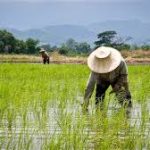As part of its national anticipatory action and early response, the UN had previously designated R93 million from the Central Emergency Response Fund in December of the preceding year. Following assessments of the drought-induced devastation, President Mnangagwa declared a State of Disaster. Edward Kallon, the UN Resident and Humanitarian Coordinator in Zimbabwe, affirmed that the UN would assist Zimbabwe in mobilizing the necessary resources.
“The UN has acknowledged the severe impact of the ongoing drought in Zimbabwe and Southern Africa, committing its support to the Zimbabwean government in mobilizing resources to address the El Nino-induced drought,” he stated. “Efforts are in progress to finalize a response plan that prioritizes food security, health, education, shelter, and other critical areas to meet the needs of those affected by the crisis.”
“This crisis has extensive repercussions across various sectors including food and nutrition security, health, water resources, education, and livelihoods, underscoring the urgency of the situation.”
Zimlive.com reported that over 2.7 million Zimbabweans would confront challenges due to insufficient food this year. President Mnangagwa noted that the 2023/24 grain harvest was anticipated to yield just over half of the cereals required to sustain the nation.
Zimbabwe becomes the third country in Southern Africa to declare a national disaster due to drought, following Malawi and Zambia. Additionally, the drought has impacted electricity production as Zimbabwe heavily relies on hydroelectric power.
As per the World Meteorological Organization, the most recent El Niño ranks among the top five strongest on record. Although it peaked in December, above-average temperatures were still anticipated until May. UN reports indicate that rainfall in January and February hit a 40-year low.
The UN stressed the critical need to bolster resilience-building and climate adaptation initiatives to mitigate the impacts of such extreme weather events and combat the overarching climate crisis.
Acknowledging the proactive planning and early actions taken by the Government of Zimbabwe and humanitarian partners, the UN commended their efforts to strengthen community resilience.
The sectors targeted with the advanced allocation included water, hygiene, sanitation, and health, particularly in response to the cholera outbreak, along with agriculture, food security, and nutrition.





